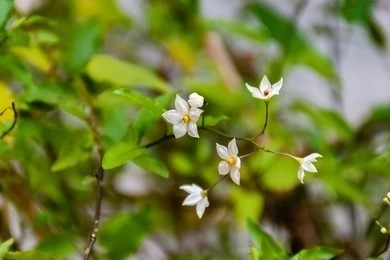Solanum Plant Tissue Culture

Solanum plants are herbs, subshrubs, shrubs to trees, sometimes vines, mainly found in tropical as well as subtropical regions, with a few in temperate regions, with about 2,000 species worldwide.
Solanum plants contain many types of chemical compounds, mainly alkaloids, flavonoids, glycosides, steroids, triterpenoids, glycosides, organic acids, and their derivatives, which have the effects of clearing heat, detoxifying, activating blood circulation, reducing swelling, resolving blood stasis, anti-tumor, anti-inflammatory, anti-fungal and anti-viral. Many plants of this genus can not only be used medicinally but are also very popular and common health vegetables.
Tissue culture service
Some Solanum plants require in vitro culture to establish a regeneration system by transferring succession, and the experimental results are good. However, some Solanum plant species can become seedlings in one step without transfer culture, and the whole regeneration system can be established in a shorter time, and the induction effect is better. Therefore, Lifeasible will choose the best solution for different species.
Lifeasible uses cotyledons, embryonic axes, stem tips, stem segments, leaves, young stem epidermis, leaf pulp, or fruit pulp of sterile seedlings grown from seeds in vitro as explants for fast in vitro propagation of Solanum plants.
- Solanum melongena L.
- Solanum americanum
- Solanum nigrum L.
- Solanum tuberosum L.
- Solanum lyratum Thunb
- Solanum torvum
- Solanum procumbens Lour.
- Solanum muricatum
- Atropa belladonna L.
The plants under sugar-free culture conditions are similar to growth in the natural environment and differ significantly from the conventional culture in terms of physiological characteristics. In the sugar-free culture, increasing the light intensity and the number of air changes in the containers increased the photosynthetic rate of the plants, resulting in faster growth and robust seedlings. This optimized tissue culture technique has been utilized by Lifeasible in the tissue culture process of potatoes. The use of sugar-free culture allows potato tissue-grown seedlings to show advantages in agronomic traits such as plant height and internode number and physiological status compared to conventional tissue culture.
You want to sign a confidentiality agreement.
You have a specific plant species for your experimental needs.
You have a reliable and relevant cooperation project to discuss.
You are very interested in our project or have any questions.
You need an updated and detailed quotation.
For research or industrial use.



